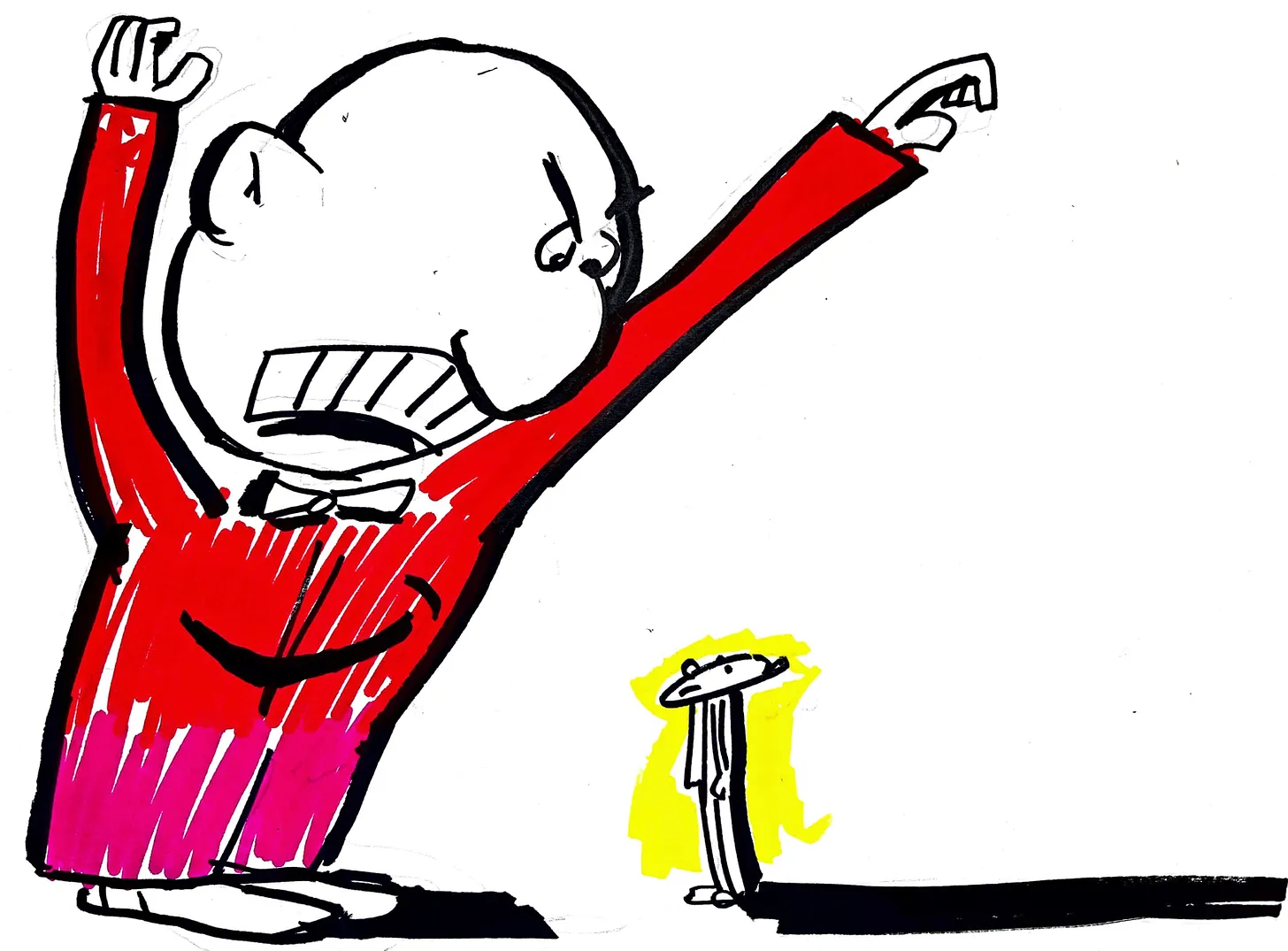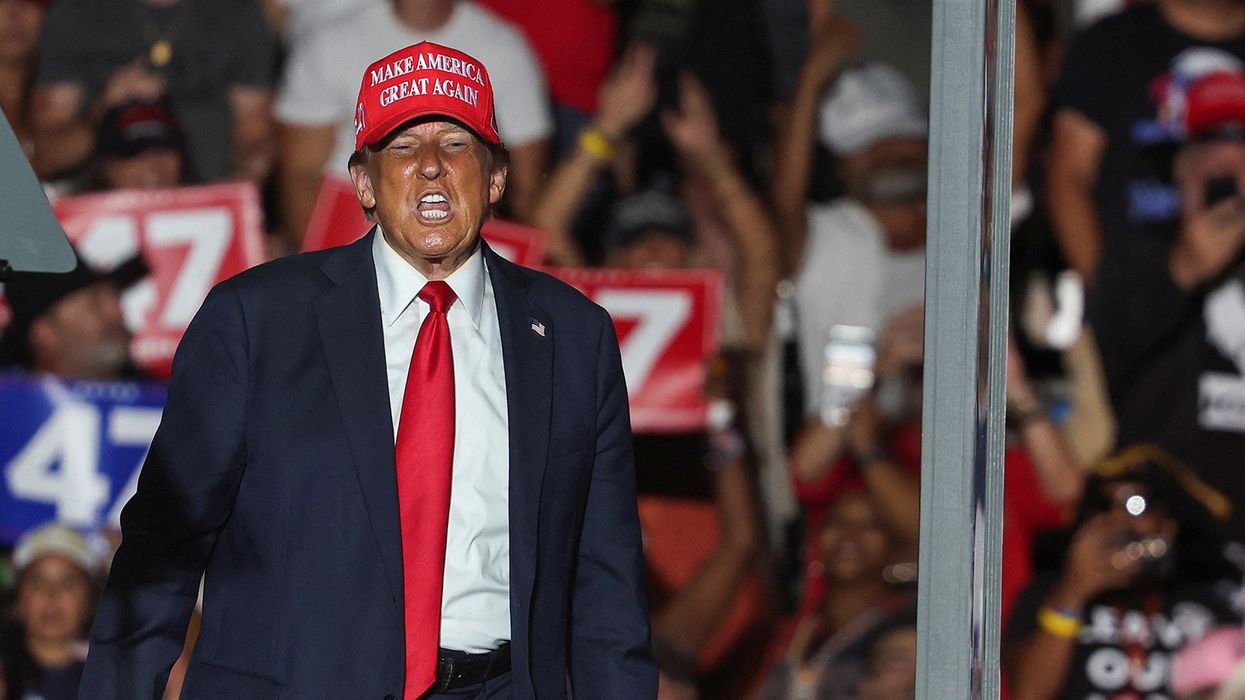- Reactions to the withheld endorsements for president by LAT and WaPo from Robert Reich, Heather Cox Richardson, and John Scalzi;
- John Kelly’s definition of fascism;
- How the working class is so concerned about inflation, focusing only on their own personal circumstances;
- And how this reflects the flaw in human nature that focuses on the local and personal with lack of concern about the big picture.
Robert Reich considers the significance of the withheld presidential endorsements by two big papers.

Robert Reich, 25 Oct 2024: Cowardice and intimidation at The Washington Post and L.A. Times, subtitled “Their billionaire owners are Trump enablers”
He outlines the situation, and ends with the resignation of Mariel Garza, editorials editor of the Washington Post.
“I am resigning because I want to make it clear that I am not OK with us being silent,” Ms. Garza said. “In dangerous times, honest people need to stand up.”
Exactly. And in dangerous times, dishonest and cowardly billionaires shouldn’t be able to abuse their power by preventing honest people from standing up.
This is how fascism takes root.
\\
Meanwhile, Heather Cox Richardson recalls Timothy Snyder’s ON TYRANNY, which I reviewed here.
Heather Cox Richardson: October 25, 2024.
Readers are speaking out against the Washington Post for demonstrating what scholar of authoritarianism Timothy Snyder calls “obeying in advance” the demands of an authoritarian leader … “Most of the power of authoritarianism is freely given,” Snyder’s “On Tyranny” reads. “In times like these, individuals think ahead about what a more repressive government will want, and then offer themselves without being asked. A citizen who adapts in this way is teaching power what it can do.”
The aftermath of the Post’s decision demonstrated what scholars say will happen after such obeying. Rather than winning favors, such a demonstration of weakness invites further abuse, as anyone who has watched Trump in action ought to know by now.
\\
And John Scalzi always has intelligent perspectives on matters like this.

John Scalzi, Whatever, 26 Oct 2024: The Scalzi Endorsement: Kamala Harris for President”
So they are pulling their punches and hedging their bets. In this, they are cowards, but they are also calculating, and because of those calculations, are being pre-emptively compliant to the fascist. If Harris wins, they will have lost nothing; Harris, they know, is not a fascist, and even if she remembers their cowardice, calculation and compliance, she will do nothing about it. But if the fascist wins, well. They have ready evidence of their fealty. Billionaires are not overly bothered by incipient fascism, after all.
Indeed, it’s already well in evidence that at least a plurality of prominent billionaires would prefer fascism at this point; it’s easier to flatter and bribe than it is to comply with regulations. Their concerns are not the concerns of the millions of Americans whose rights and prospects will be threatened by a fascist in the White House. They never have been. They never will be. A fascist in the White House is all right with them.
Make no mistake: Donald Trump, in his words and actions of this election season and beyond, has shown himself a fascist. The will to power; the anger; the assertion that the “enemy within” (i.e., anyone who does not bow the knee) is a greater threat than the foreign despots he is so cravenly in the pockets of; the desire to use the military to attack and punish American citizens; the contempt for the rule of law; the intent to enforce loyalty to him as a condition of government employment; the almost certain attempt to implement the policies in the Project 2025 playbook; the bald declaration to be a dictator from day one.
\\
And this piece has a good, succinct definition of what a fascist is, from Gen. John Kelly.

AlterNet, The Conversation, 26 Oct 2024: Is Donald Trump a fascist? Here’s what an expert thinks
Kelly also provided a surprisingly rigorous definition of fascism, a term famously flexible as both a political concept and a political insult. He described it as “a far-right authoritarian, ultranationalist political ideology and movement characterised by a dictatorial leader, centralised autocracy, militarism, forcible suppression of opposition, belief in a natural social hierarchy”.
The issue is why so many Americans either don’t see this, or are happy with it.
\\
And part of the answer may be here.

NY Times, guest essay by Adam Seessel, 24 Oct 2024: It’s the Inflation, Stupid: Why the Working Class Wants Trump Back
Anti-Trumpers like me see the presidential election as a reckoning for American democracy. For many Donald Trump supporters, it is a simple matter of dollars and cents.
Late this summer, I left my home in New York City to talk to dozens of working-class people in the South, the Midwest and the West. I had no agenda except to hear what they were saying and try to understand the world from their point of view. I interviewed hairdressers and retired sawmill workers, bakers, truck drivers, laundromat managers, pit barbecue cooks, casino card dealers and even a former professional rodeo rider.
The most common term people used to describe the economy was “horrible.” A close second was, “It sucks.”
And.
But why turn to a lying, abusive billionaire to help them solve their economic problems? Their explanation is simple. Times were good when Trump was president. Now eggs cost nearly three times what they did four years ago, the rate on a car loan is more than 50 percent higher, and some companies are cutting hours. Mr. Trump, they think, is the candidate to turn things around.
In many ways, those sentiments are not surprising. Commentators from Alexis de Tocqueville to James Carville have noted the centrality of money in American life and politics. After all the rhetoric and all the angst, perhaps this election will turn out to be yet another proof of Mr. Carville’s maxim: When it comes to getting votes, it’s the economy, stupid.
\\
So here’s my latest insight. People think of the economy, and politics, in ways analogous to how they think about matters of time and space, where the realities are vast and beyond the comprehension of ordinary human experience. (This is a theme in my as-yet-unpublished essay for Gary Westfahl.) People project their own local experiences onto the universe at large, so that in space movies any destination can be reached in a few hours or days, and among religious people time is understood to have not existed older than the earliest human writings, or simply ignored in any future more than a generation or two ahead. Similarly, most people are concerned about “the economy” only to the extent that it affects them personally. Isn’t this reasonable? No. It might have been in tribal days, but not now. It’s another example of projecting local circumstances onto the world at large, and ignoring the complexities of that world. E.g. Trump didn’t control inflation nor did Biden cause it (how do people possibly think that they did?); inflation has been a worldwide phenomenon triggered in recent years largely by the pandemic, and is under no president’s control. (Remember, there’s *always* been inflation. Think of how much a car, or a house, cost 50 years ago.) Yet people vote as if the president can wave a magic wand and lower inflation. He can’t, and voters are naive to think so. That doesn’t mean they don’t think so. I’ve wondered if the way the population blames the current president for things beyond his control doesn’t mean that, in any given election, voters are essentially four years behind in assigning blame.





